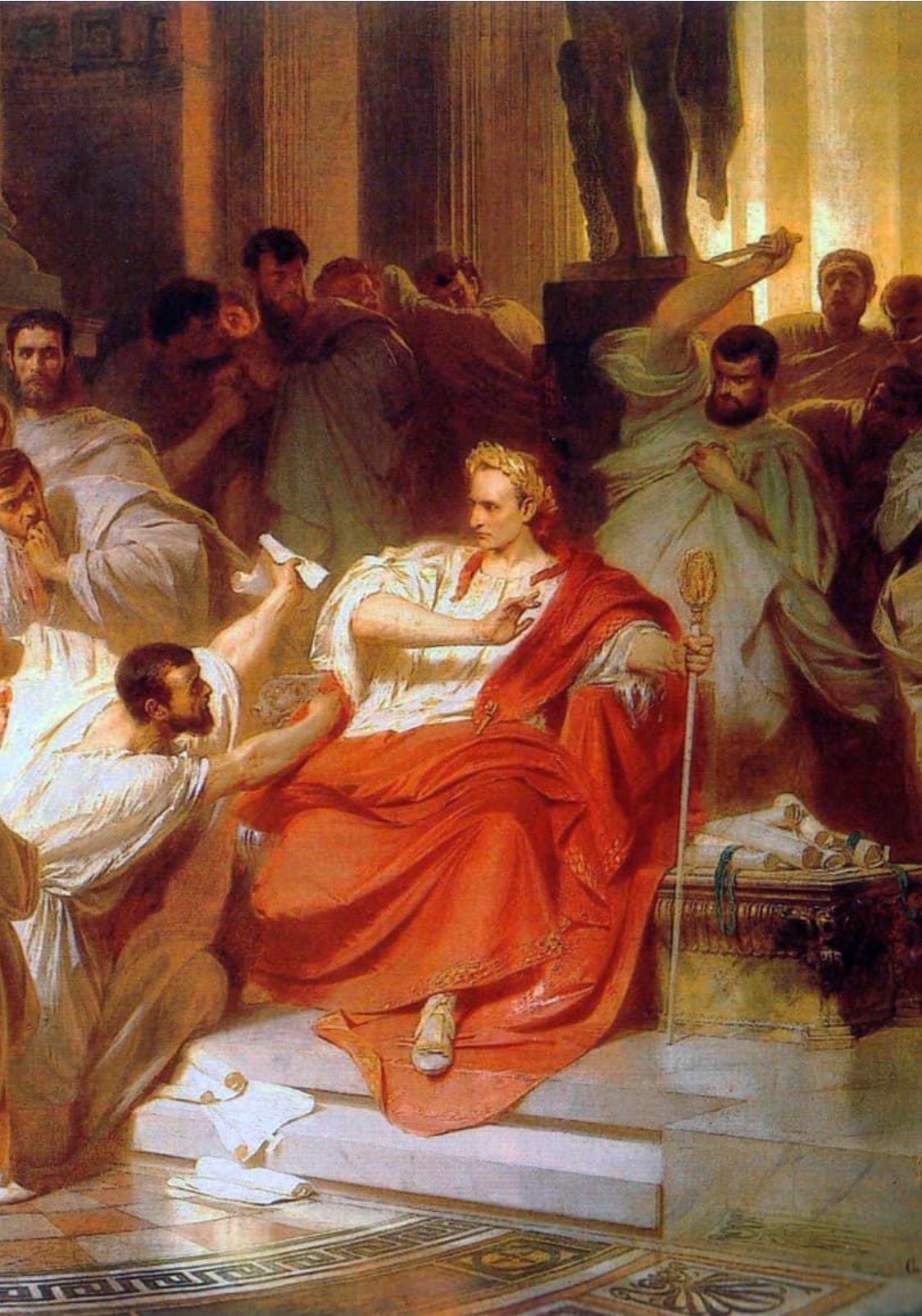I: Caesar's growing power
X
After his successful military campaigns, especially the conquest of Gaul, Julius Caesar became extremely powerful and popular in Rome.
II: Political rivalries
X
Caesar's increasing power led to political rivalries and tensions with other prominent Roman figures, including Pompey the Great and members of the Roman Senate.
III: Crossing the Rubicon
X
(49 BC): Caesar defied the Senate's order to disband his army, crossing the Rubicon River with his troops, which was considered an act of war against Rome.
IV: Civil War
X
(49-45 BC): This led to a civil war between Caesar and Pompey, which Caesar eventually won, effectively making him the most powerful man in Rome.
V: Caesar's appointment as Dictator
X
(46-44 BC): Caesar was appointed as Dictator of Rome, initially for a period of ten years and later for life, concentrating power in his hands.
VI: Discontent among the senators
X
Many senators feared that Caesar aimed to become a king, which was unacceptable in the Roman Republic. They believed his power threatened their own authority and the republican traditions of Rome.
VII: Formation of a conspiracy
X
A group of senators, including Marcus Brutus and Gaius Cassius, formed a conspiracy to assassinate Caesar and restore the Republic.
Data: Ides of March
X
